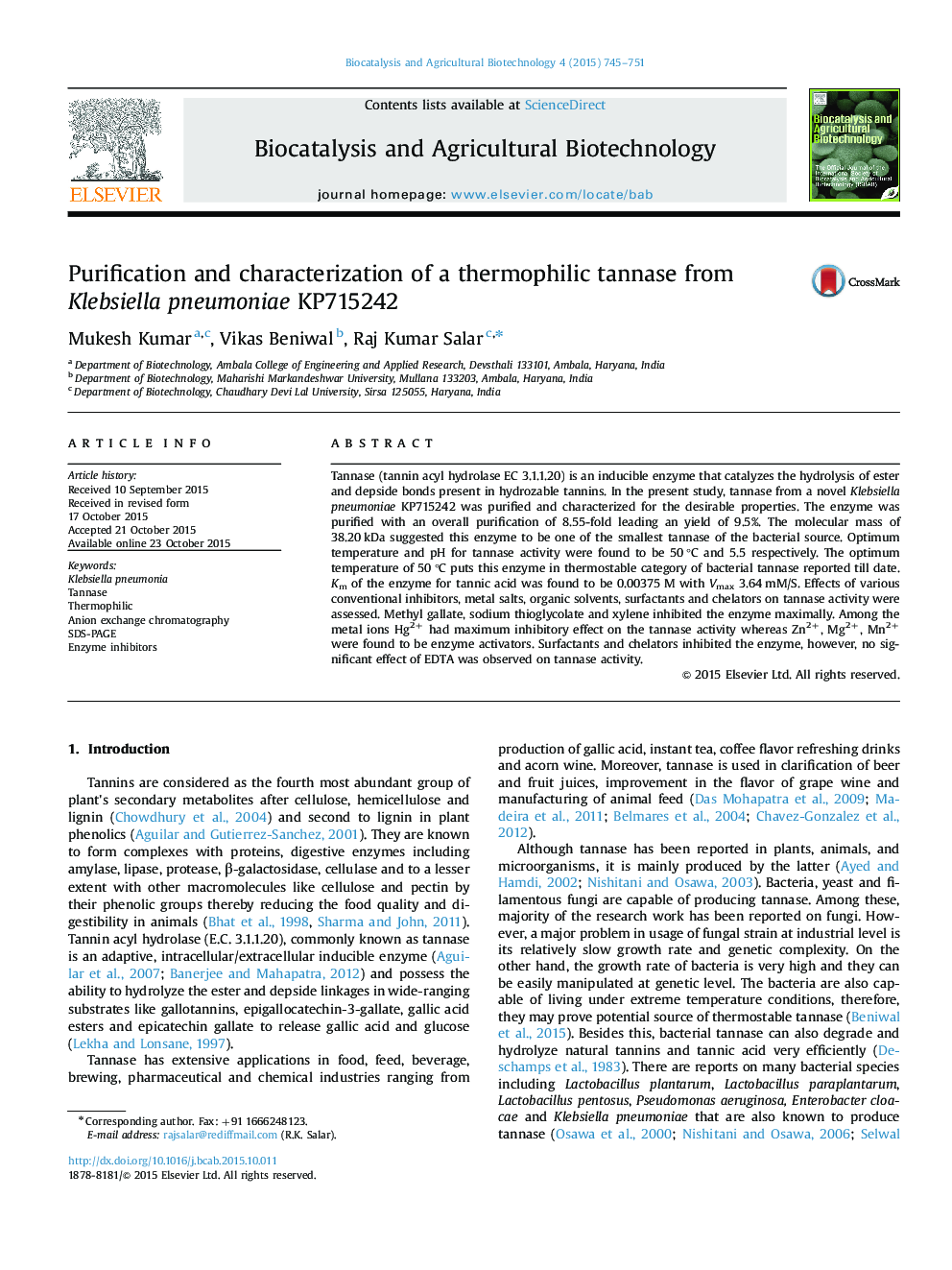| Article ID | Journal | Published Year | Pages | File Type |
|---|---|---|---|---|
| 2075332 | Biocatalysis and Agricultural Biotechnology | 2015 | 7 Pages |
Tannase (tannin acyl hydrolase EC 3.1.1.20) is an inducible enzyme that catalyzes the hydrolysis of ester and depside bonds present in hydrozable tannins. In the present study, tannase from a novel Klebsiella pneumoniae KP715242 was purified and characterized for the desirable properties. The enzyme was purified with an overall purification of 8.55-fold leading an yield of 9.5%. The molecular mass of 38.20 kDa suggested this enzyme to be one of the smallest tannase of the bacterial source. Optimum temperature and pH for tannase activity were found to be 50 °C and 5.5 respectively. The optimum temperature of 50 °C puts this enzyme in thermostable category of bacterial tannase reported till date. Km of the enzyme for tannic acid was found to be 0.00375 M with Vmax 3.64 mM/S. Effects of various conventional inhibitors, metal salts, organic solvents, surfactants and chelators on tannase activity were assessed. Methyl gallate, sodium thioglycolate and xylene inhibited the enzyme maximally. Among the metal ions Hg2+ had maximum inhibitory effect on the tannase activity whereas Zn2+, Mg2+, Mn2+ were found to be enzyme activators. Surfactants and chelators inhibited the enzyme, however, no significant effect of EDTA was observed on tannase activity.
